
Why Does My Washing Machine Smell? Understanding and Solving the Problem
Introduction
Is your washing machine giving off an unpleasant odor? You’re not alone! This common issue can stem from various sources. It’s essential to tackle this problem for both hygiene and the longevity of your appliance. After all, nobody wants their clean clothes to smell bad. In this article, we’ll discuss the causes of those funky smells, how to fix them, and ways to prevent future odors.
Summary and Overview
Unpleasant smells from washing machines are surprisingly common. They can ruin the freshness of your laundry and might even make doing laundry a chore. The primary culprits behind these odors include mold, mildew, bacteria, and detergent buildup. Understanding these sources is vital for resolving the issue effectively. By addressing the root causes, you can enjoy fresh-smelling laundry again. In the upcoming sections, we’ll explore the common causes, practical solutions, and preventive measures to keep your washing machine smelling great. Get ready to reclaim your laundry routine!
Common Causes of Washing Machine Smells
Mold and Mildew Accumulation
A damp environment is perfect for mold growth. Washing machines often trap moisture, especially in the gasket and door seal. This can lead to unpleasant odors. Cleaning the door seal regularly is crucial. Wipe it down after each use to prevent buildup. Believe it or not, around 60% of households report this issue. Regular maintenance can save you from dealing with musty smells later.
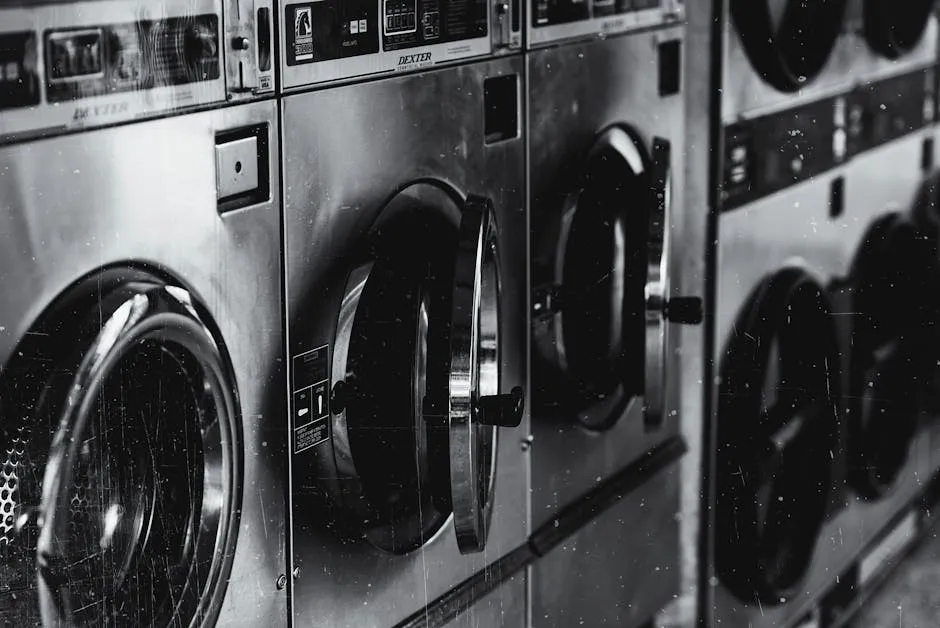
One of the easiest ways to combat mold is with Baking Soda. It’s a natural deodorizer that can help neutralize odors. Just sprinkle some in your washing machine before running a cycle, and you’ll be amazed at the difference!
Detergent Buildup
Using too much detergent can create a residue in your washer. This buildup can mix with moisture, leading to unwanted odors. Always check the recommended amount on your detergent packaging. High-efficiency (HE) detergents are designed for modern machines. They produce fewer suds and clean effectively without leaving residues. Make sure you’re using the right type!
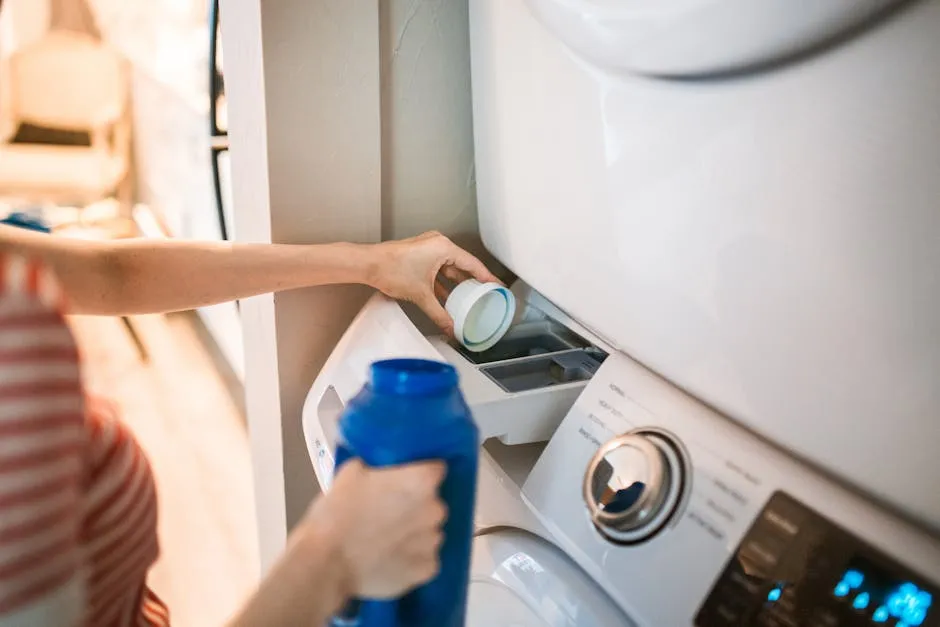
And speaking of HE detergents, don’t forget to try HE Laundry Detergent. They’re formulated to give you a deep clean without the residue, ensuring your clothes come out smelling fresh!
Clogged Drain and Pipes
Blockages in the washer’s drain can cause stagnant water. This standing water is a breeding ground for odors. If you notice slow draining or water pooling, it’s time to inspect the pipes. Signs of drainage issues include bad smells or clothes not washing properly. Regularly check and clear any obstructions to keep your machine fresh.
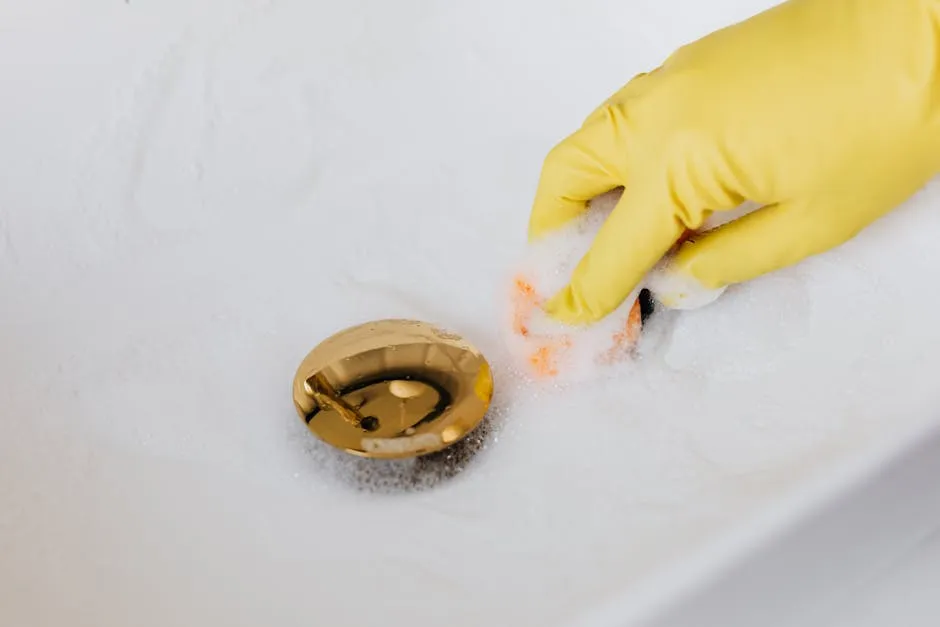
Improper Maintenance and Cleaning
Regular maintenance is key to a smell-free washing machine. Many people forget to schedule cleaning. Aim for a service wash at least once a month. Running a hot cycle without clothes can help. This washes away any lurking bacteria and residues. If you neglect cleaning, odors will build up over time. A little effort now can save you from bigger problems later!
Environmental Factors
Your laundry room’s environment plays a significant role in washing machine odors. A damp, poorly ventilated space creates the perfect breeding ground for mold and bacteria. When moisture lingers, it can quickly lead to unpleasant smells.
Proper ventilation is crucial. If your laundry area lacks airflow, humidity can build up. This makes it easier for odors to develop and linger. Consider installing a vent or using a fan to improve air circulation. Keeping the laundry area dry helps maintain a fresh-smelling washing machine. A great addition to your laundry room could be a Ventilation Fan to keep the air moving!

Understanding how environmental factors contribute to issues like washing machine odors can help you maintain a cleaner space. why do environmental factors contribute to glossophobia in the workplace
How to Clean and Refresh Your Washing Machine
Step-by-Step Cleaning Process
Cleaning your washing machine is vital for freshness. You’ll need a few simple materials: baking soda, vinegar, and a sponge.
1. Mix Solutions: In a bowl, combine 1/4 cup of baking soda with 1 cup of vinegar. This creates a powerful cleaning solution.
2. Run Cleaning Cycles: Pour the mixture into your drum and run a hot water cycle. This helps eliminate odors and grime.
After the cycle, wipe down the interior with a sponge. Pay special attention to corners and crevices.
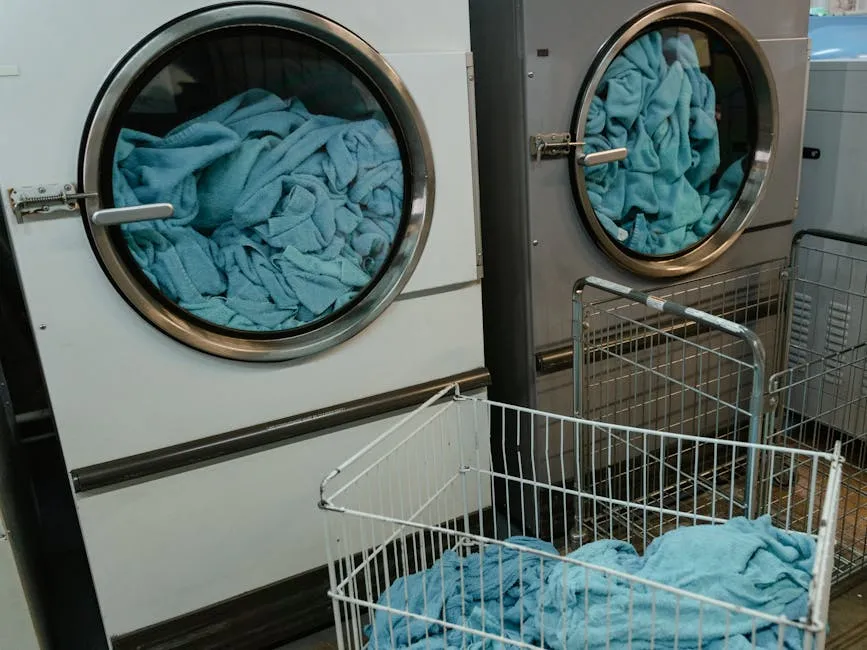
Cleaning Specific Areas
Gasket and Door Seal
The gasket and door seal accumulate moisture and residue. Regularly cleaning these areas prevents musty odors. Aim to clean them every couple of weeks. Use a mixture of water and vinegar on a cloth to wipe down the seals thoroughly.
Detergent Dispenser
Your detergent drawer can harbor buildup, leading to smells. To clean it, remove the dispenser and soak it in warm, soapy water for 15 minutes. Scrub it gently with a brush to remove residue. Rinse and dry it completely before reinserting it. Aim to check and clean this area every month to keep odors at bay.
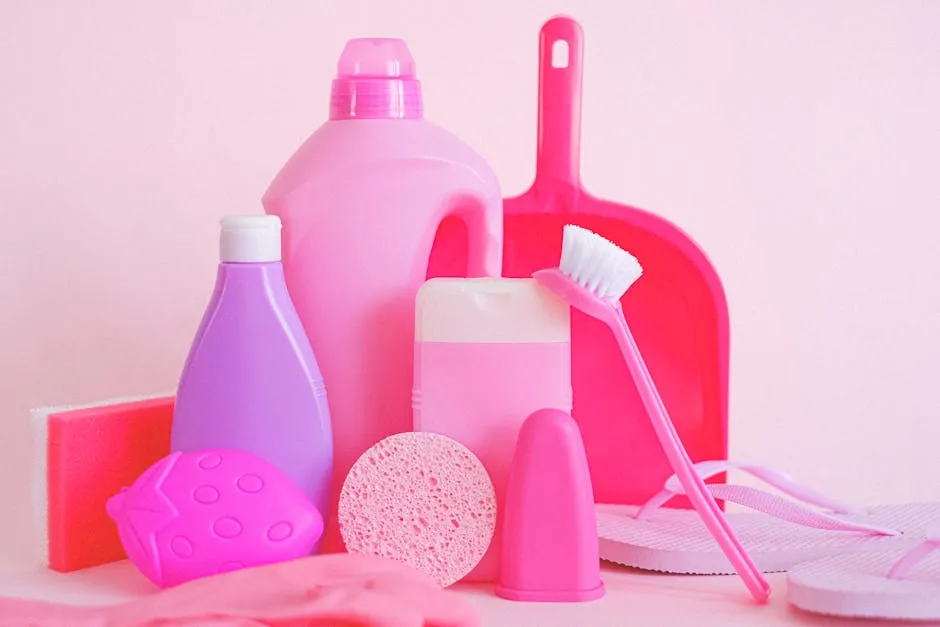
Filter and Drain
Your washing machine’s filter and drain are crucial to keeping odors at bay. A clogged filter traps debris, leading to unpleasant smells. Regularly cleaning the filter helps maintain a fresh environment for your laundry. You can use Drain Cleaning Brush to keep things clear!
To check the drain, locate the filter at the bottom front of your machine. Unscrew it gently and remove any lint or buildup. Follow these steps to ensure it’s clean:
1. Turn Off the Machine: Always disconnect the power before starting.
2. Place a Towel: Lay a towel beneath the filter to catch any water.
3. Unscrew and Clean: Unscrew the filter and clean it under running water.
4. Reassemble: Screw it back in place securely.
Doing this every few months will help keep that musty smell away.
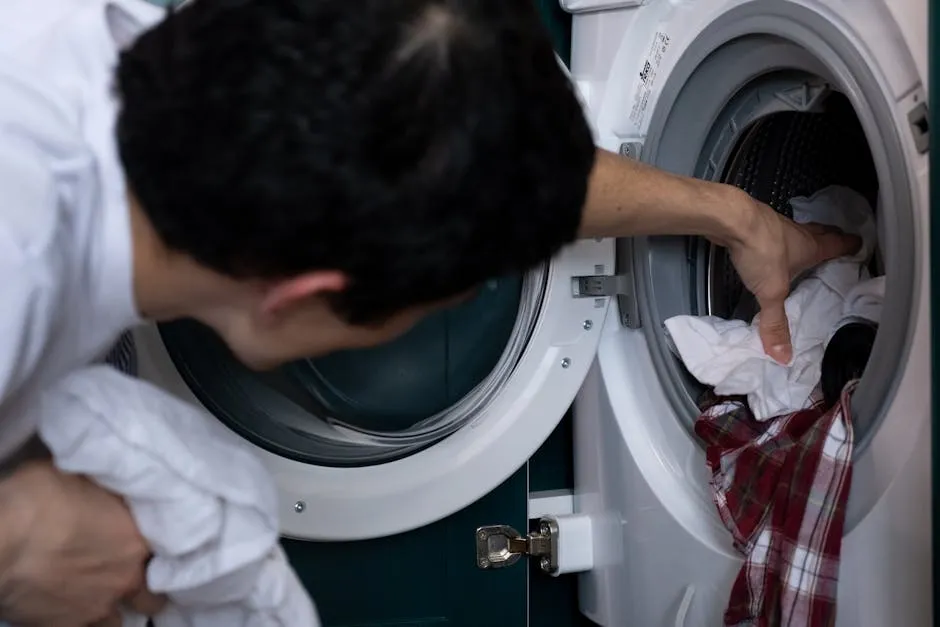
Preventive Measures to Keep Your Washing Machine Smell-Free
Regular Maintenance Tips
Establishing a regular cleaning schedule is vital. Aim to clean your washing machine at least once a month. This simple step can help prevent odors from building up.
Another effective tip is to leave the door open after each use. This promotes air circulation, allowing moisture to escape. A dry environment reduces the risk of mold and mildew growth.

Proper Washing Techniques
Washing clothes at higher temperatures can help eliminate bacteria. Aim for at least 60°C (140°F) for a deep clean. Always check your fabric care labels to avoid damage.
Using the right amount and type of detergent is also essential. Too much detergent can leave residues that contribute to odors. Follow the manufacturer’s recommendations for dosage based on your load size. And for added freshness, consider adding Fabric Softener to your routine!
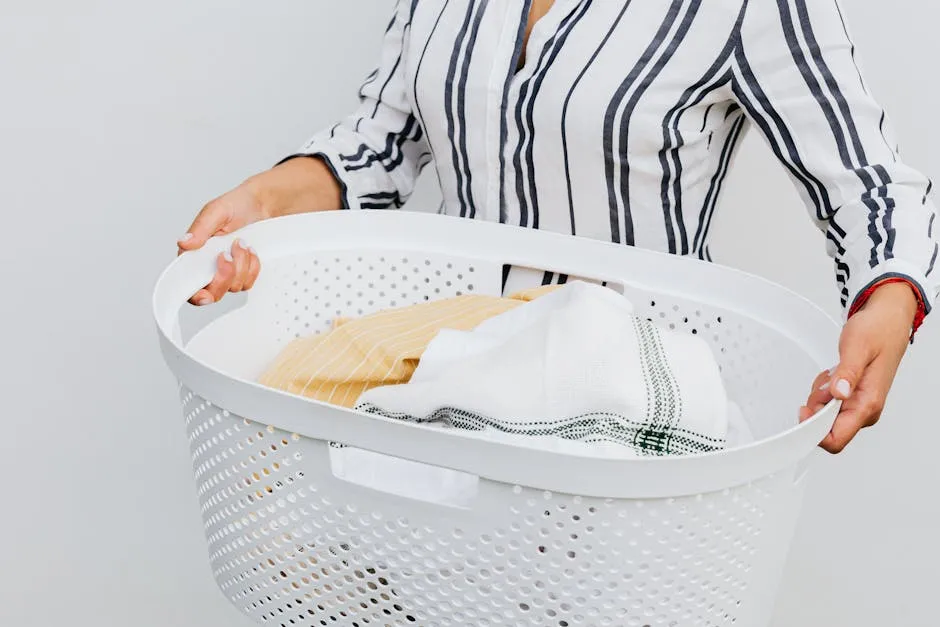
Environmental Adjustments
Improving air circulation in your laundry room can significantly reduce smells. Consider installing a vent or using a fan to keep the air moving.
If humidity is an issue, a Dehumidifier may be beneficial. It can help absorb excess moisture, creating a drier environment. A drier space means less chance for those pesky odors to develop.

Conclusion
Maintaining a clean washing machine is crucial for fresh laundry. Regular cleaning prevents unpleasant odors and keeps your machine in top shape. Implement the tips we’ve discussed to avoid those funky smells.
A fresh-smelling laundry environment not only feels good but also promotes better hygiene. After all, nobody wants their clean clothes to smell bad! Take action today for a cleaner, healthier home.
FAQs
Why does my washing machine smell like rotten eggs?
A rotten egg smell often indicates bacteria buildup or plumbing issues. The lingering odor may stem from stagnant water or a clogged drain. Addressing the source is essential for a fresh-smelling machine.
How often should I clean my washing machine?
Aim to clean your washing machine at least once a month. If you do frequent laundry, consider more regular cleanings to prevent odor buildup and keep it fresh.
Can I use vinegar to clean my washing machine?
Yes! Vinegar is effective for cleaning and deodorizing. Mix it with baking soda for a powerful cleaning solution. Just be cautious not to mix vinegar with bleach, as it creates harmful fumes.
What should I do if the smell persists after cleaning?
If odors continue, it might be time to contact a professional. Persistent smells could indicate plumbing or mechanical issues that need expert attention.
Is it okay to leave wet clothes in the washing machine?
No, leaving wet clothes can lead to mold and unpleasant smells. Always remove clothes promptly and leave the door open to allow airflow.
How can I prevent my washing machine from smelling in the future?
To prevent odors, maintain regular cleaning, leave the door open after use, and promptly remove wet laundry. These habits significantly reduce the chances of unpleasant smells.
What type of detergent should I use to avoid smells?
Use high-efficiency detergents specifically designed for your washing machine. Follow the recommended dosage to prevent residue buildup that can cause odors.
For those who want to make laundry even easier, consider a Portable Washing Machine. It’s perfect for small spaces or quick loads, making laundry less of a chore!
Please let us know what you think about our content by leaving a comment down below!
Thank you for reading till here 🙂
All images from Pexels




